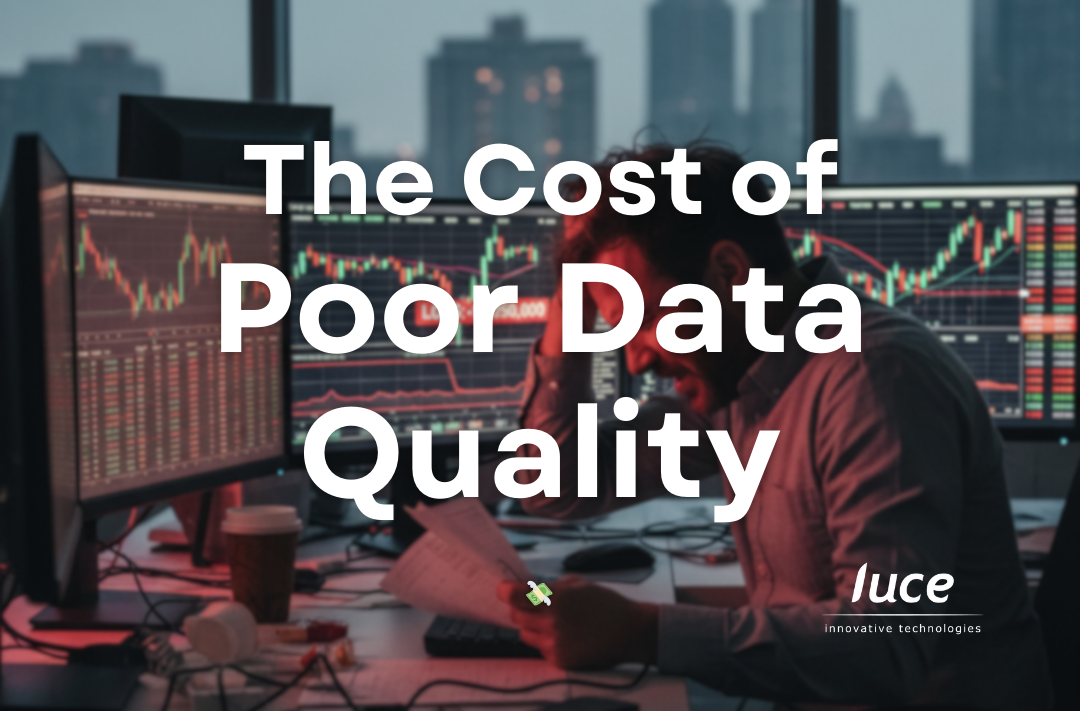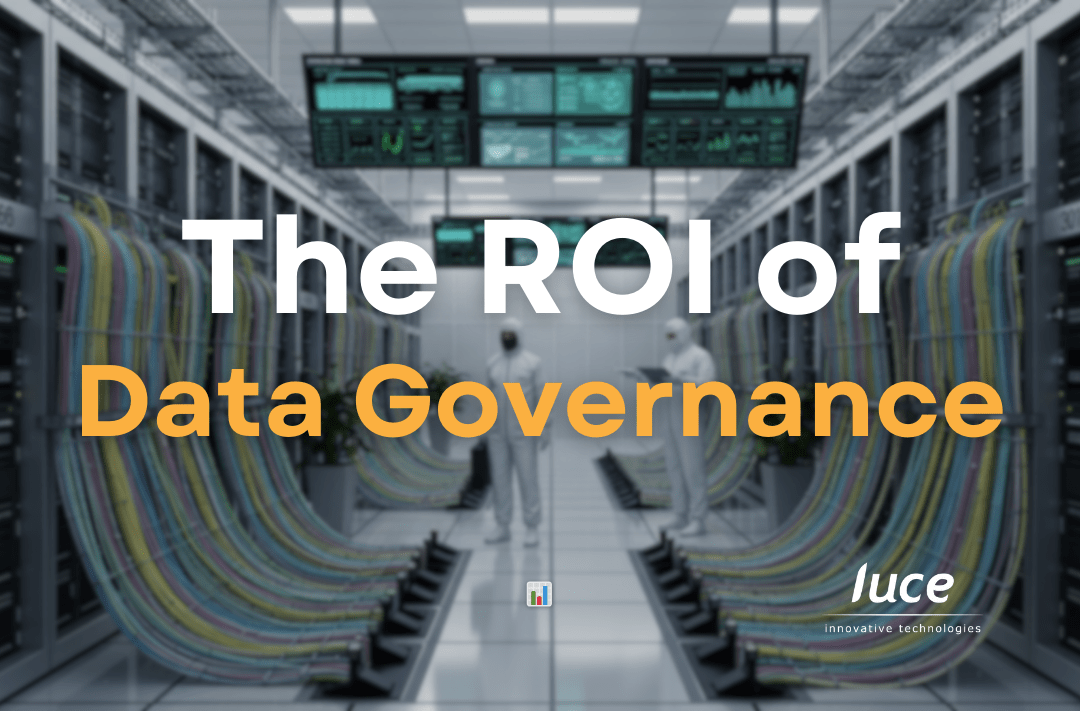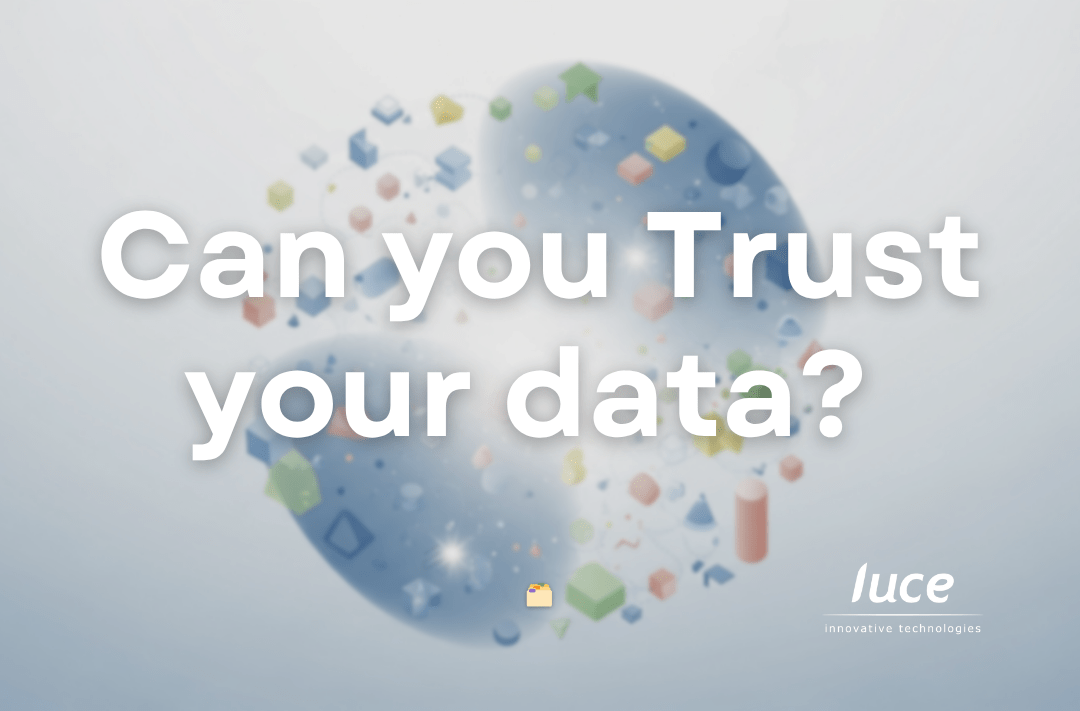
The Cost of Poor Data Quality
Poor data quality is not just a technical problem: it is a constant drain on money, time and opportunities. If you suspect that “something is wrong” when making decisions or meeting objectives, you probably have data that is not governed. Here we explain, in a direct and practical way, how much it can cost and what data governance does to solve it.
How much does poor data quality really cost?
The figures help to understand the magnitude of the problem. According to research, the average company loses around £12.9–15 million per year due to data quality issues. Gartner
On a macro scale, studies indicate that poor quality can cost billions: for example, one analysis estimated losses due to incomplete or erroneous data in the US economy at more than £3.1 billion per year. hbr.org
Beyond the direct monetary impact, the operational impact is brutal: employees can spend up to 27% of their time correcting, validating, or searching for accurate data instead of performing higher-value tasks. That lost time translates into delays, salary costs, and delayed decisions. Actian
(These figures summarise the visible and invisible costs: lost revenue, resubmissions, reprocessing, unproductive hours, and wrong decisions.)
Everyday examples (where the money goes)
- In retail: inconsistent shipping addresses lead to costly returns and reshipments; inventory errors cause stockouts or excess stock.
- In marketing and sales: databases with duplicates or obsolete contacts result in campaigns being sent to the wrong recipients and duplicated efforts.
- In finance: reports with outdated data distort forecasts and can lead to misguided investments.
- Operations: manual correction and reconciliation processes (reprocessing) are time-consuming and create bottlenecks.
Additional risks: reputation and compliance
Poor quality not only reduces revenue: it damages trust (customers receiving incorrect bills or erroneous communications) and can lead to regulatory penalties if reports do not meet legal requirements. In the long run, the brand suffers and it is very difficult to regain credibility.
Why do those in power invest in their data?
A data governance programme (policies, roles, definitions and controls) transforms data into a reliable asset. Key benefits and their economic impact:
- Less rework and higher productivity. By reducing errors at source and automating validations, much of the time currently spent cleaning data is recovered. Academic and industry studies show that adopting governance improves efficiency, reduces risk and increases confidence in information. PMC
- Faster and more accurate decisions. With unique definitions and a data dictionary, reports are reproducible and strategic decisions based on “garbage data” are avoided.
- Better compliance and traceability. Control and accountability prevent fines and legal problems.
- Impact on results. Companies that improve their data quality tend to exceed financial and commercial objectives more easily.
Cost of doing nothing vs. cost of governing data
- Cost of non-quality: direct losses (reshipments, returns, incorrect billing), missed opportunities, wasted man-hours and regulatory risks — all recurring and often hidden. (E.g.: the millions annually indicated by Gartner.) Gartner
- Cost of governance: initial investment in roles (data owners, data stewards), policies, processes and quality tools. This is a visible, one-time/progressive expense that pays for itself quickly: fewer reprocessings, improvements in reporting speed and greater customer retention. Studies and practices show that the cost/benefit ratio clearly favours governance when recovered hours and avoided losses are quantified. PMC+1
What you can measure now (small steps to justify the investment)
- Weekly hours spent searching/cleaning data per team (multiply by hourly cost).
- Number of returns/refunds due to data errors in 3 months.
- Percentage of marketing campaigns with bounce/duplication due to faulty data.
- Regulatory incidents or corrections in financial reports.
¿Por dónde empezar?
👉 At Luce, we help data stop being a hidden cost and become a business lever. Our Data Quality, Data Platform and LIA assets enable you to reduce quality errors by up to 70%, accelerate the exploitation of information in real time and guarantee reliable decisions. Companies such as BBVA, Seur and Domus already trust us to govern their data and transform efficiency into measurable results. If you want to calculate the real impact this can have on your organisation, let’s talk.
Luce IT, your trusted technology innovation company
The Luce story is one of challenge and non-conformity, always solving value challenges using technology and data to accelerate digital transformation in society through our clients.
We have a unique way of doing consulting and projects within a collegial environment creating “Flow” between learning, innovation and proactive project execution.
At Luce we will be the best by offering multidisciplinary technological knowledge, through our chapters , generating value in each iteration with our clients, delivering quality and offering capacity and scalability so they can grow with us.
>> The voice of our customers – Rated 9 in 2024
>> Master Plan 2025: Winning the game




